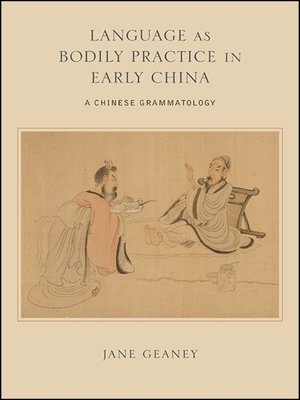Language as Bodily Practice in Early China
ebook ∣ A Chinese Grammatology · SUNY Series in Chinese Philosophy and Culture
By Jane Geaney

Sign up to save your library
With an OverDrive account, you can save your favorite libraries for at-a-glance information about availability. Find out more about OverDrive accounts.
Find this title in Libby, the library reading app by OverDrive.



Search for a digital library with this title
Title found at these libraries:
| Library Name | Distance |
|---|---|
| Loading... |
Challenges the idea held by many prominent twentieth-century Sinologists that early China experienced a "language crisis."
Jane Geaney argues that early Chinese conceptions of speech and naming cannot be properly understood if viewed through the dominant Western philosophical tradition in which language is framed through dualisms that are based on hierarchies of speech and writing, such as reality/appearance and one/many. Instead, early Chinese texts repeatedly create pairings of sounds and various visible things. This aural/visual polarity suggests that texts from early China treat speech as a bodily practice that is not detachable from its use in everyday experience. Firmly grounded in ideas about bodies from the early texts themselves, Geaney's interpretation offers new insights into three key themes in these texts: the notion of speakers' intentions (yi), the physical process of emulating exemplary people, and Confucius's proposal to rectify names (zhengming).







